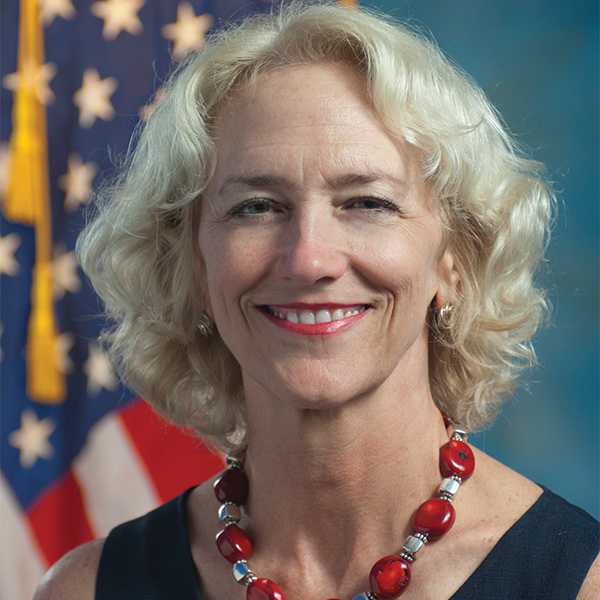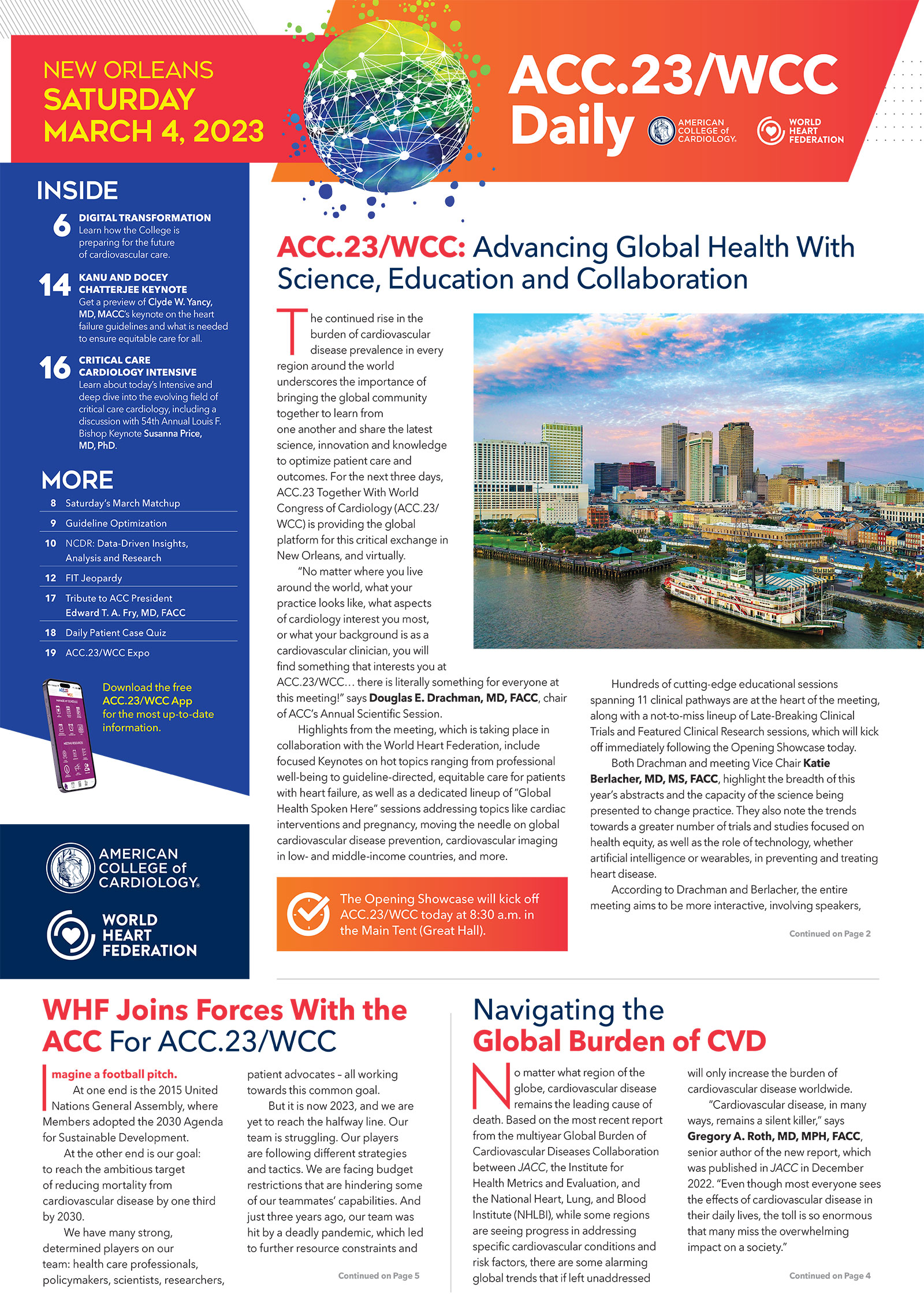NCDR: Transforming CV Care Through Data-Driven Insights, Analysis and Research

For more than two decades, ACC's NCDR registries have provided data-driven insights, analysis and research to inform clinical and operational decisions, allowing hospitals and health systems around the world to perform at the highest level and deliver optimal care to every patient, every time.
The NCDR was born 25 years ago out of a quest to answer questions that were beginning to emerge at that time around whether metrics, data collection and outcomes analysis could improve the quality of health care.
"The future of medicine is increasingly in the hands of those who are effective users of clinical data," said Bill Weintraub, MD, MACC, et al., writing in 1997 in JACC about the vision for NCDR.
Since then, what started as a mission to provide quality benchmarking data on individual hospital performance compared to the national average, has grown into a comprehensive suite of registries that are helping measure and quantify quality improvement, identify and close gaps in guideline-recommended care, and optimize the implementation and use of new treatments and therapies across several major clinical areas.
Among its many successes, NCDR has played a key role in helping hospitals and health systems reduce door-to-balloon times to guideline-recommended levels; control costs associated with preventable procedural complications like PCI bleeds; reduce avoidable hospital readmissions; and ensure safe and effective implementation of TAVR in the U.S.
Not to mention, registry data have been used in hundreds of clinical studies published in leading peer-reviewed medical journals, including JACC, and presented at meetings like ACC's Annual Scientific Session.
"While research is not the principal objective of the registry programs, NCDR has now contributed to more than 500 peer-reviewed papers in the medical literature and has done a lot to advance our understanding of cardiovascular care in the 'real world' – more than any other data source imaginable," says Frederick A. Masoudi, MD, MSPH, MACC.

High quality cardiovascular care is a team sport and NCDR has operated, from the beginning, with a broad definition of 'team.'
– Janet Wright, MD, FACC
This success and growth of the NCDR is in part due to collaborations across the cardiovascular community, including with the Society of Thoracic Surgeons and the Society for Cardiovascular Angiography and Interventions.
"The NCDR has shown how intersocietal collaboration and cooperation can contribute to the safe and efficacious development of innovative medical technologies that have transformed the practice of cardiovascular surgery and medicine," says William J. Oetgen, MD, MBA, MACC, who cites the STS/ACC TVT Registry, which celebrated its 10-year anniversary in 2022, as one of the best examples of collaboration in action. New research from the registry analyzing the safety and efficacy of transcatheter edge-to-edge mitral repair in degenerative mitral regurgitation will be part of the Feature Clinical Research II session taking place tomorrow.
External influencers like the Centers for Medicare and Medicaid Services (CMS), U.S. Food and Drug Administration, Centers for Disease Control and Prevention, National Quality Forum, payers, industry stakeholders and innovation partners have also played an important role in NCDR's growth and expansion.
"High quality cardiovascular care is a team sport and NCDR has operated, from the beginning, with a broad definition of 'team,'" says Janet Wright, MD, FACC, one of this year's Distinguished Award Winners who will be recognized on Monday during Convocation. "Over its history, NCDR leaders have listened to the needs of their stakeholders. The results are registries, processes and support services that meet or exceed those needs for access to timely data and expertise, insights into key issues in cardiovascular care, and educational opportunities ready-made for clinicians, practices and health systems."
Looking ahead, as the U.S. health care system continues to transition to a value-based model, the need to track health care outcomes through registry programs like the NCDR is only more critical. Continuing to leverage new technologies to ease data burden and streamline clinician and even patient access is also important. In addition, the COVID-19 pandemic has further highlighted the critical global need to address health equity and social determinants of health. The NCDR has a real opportunity to help lead and drive solutions in this area.
"The growth of the NCDR registry portfolio from the very first registry in 1997 to our current suite of registries has helped hospitals and other facilities around the world improve their patient outcomes and play a central role in transforming cardiovascular care through use of robust risk adjustment, hospital and physical benchmarking, and important feedback," says Ralph G. Brindis, MD, MPH, MACC. "Looking ahead to the next 25 years, there's a real opportunity to leverage the timely data, expertise and real-world insights to foster and grow a true local, national and international learning health care environment."
Clinical Topics: Cardiac Surgery, COVID-19 Hub, Invasive Cardiovascular Angiography and Intervention, Valvular Heart Disease, Aortic Surgery, Cardiac Surgery and VHD, Interventions and Imaging, Interventions and Structural Heart Disease, Angiography, Nuclear Imaging, Mitral Regurgitation
Keywords: ACC23, ACC Annual Scientific Session, ACC Scientific Session Newspaper, ACC.23/WCC Meeting Newspaper, National Cardiovascular Data Registries, ACC Accreditation, Patient Readmission, Medicaid, Centers for Medicare and Medicaid Services, U.S., Mitral Valve Insufficiency, Percutaneous Coronary Intervention, Transcatheter Aortic Valve Replacement, COVID-19, Surgeons, Angiography
< Back to Listings


